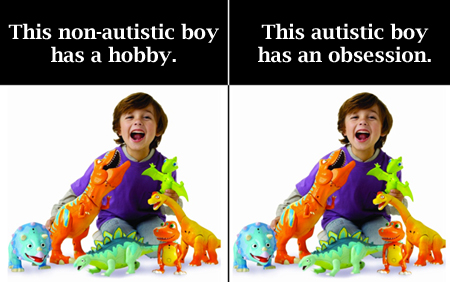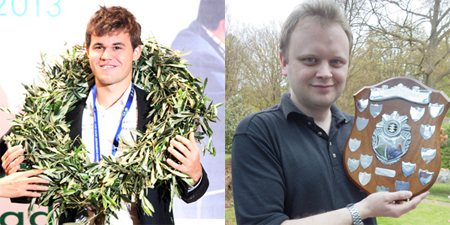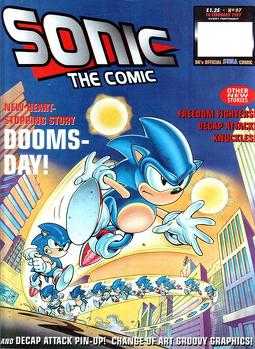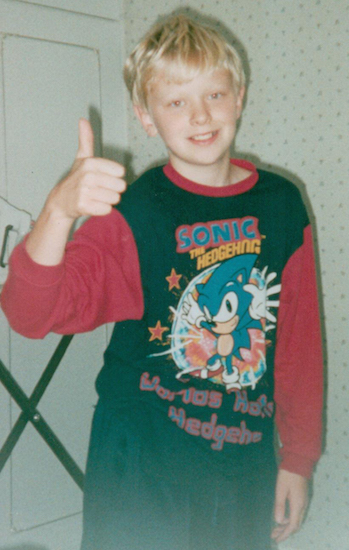Autistic 'Obsessions' and Why We Really, Really Need Them
Autistic people like me are known for their “obsessions.” Be it washing machines, vacuum cleaners or dinosaurs (hell yeah, dinosaurs!!), having obsessions is seen as an autistic trait.
And therefore, it’s something unhealthy. Or at the very least deficient.
Now, people who hold those kind of obsessions usually struggle to articulate why they’re so appealing, or at least in ways the other person can understand or relate to. So allow me.
What’s the difference between an interest and an obsession?
Well, to be cynical: Normal people have “interests.” Autistic people have “obsessions.”
Sometimes they are one and the same — it’s other people’s perceptions that differ. Mainly because the way we express our love for things is less “normal” than the way others do.
For example, when I was about 7, my main interest was dinosaurs. But whereas most young children would express their love of dinosaurs by pretend-roaring and stomping around the playground, I expressed my love by telling people I wanted to be a paleontologist (and telling them how to spell it), memorizing geological eras from Precambrian to Pleistocene, learning Latin words so I knew what dinosaur names meant and reaching the stage where I could grab a piece of paper and write down 91 different species by memory. (Yes, this happened when I was in first grade.)
If teachers had known about autism back then, I’m pretty sure this would’ve been an “autistic obsession,” rather than a legitimate interest.

During my time in education, I ran 16 different chess tournaments in six different schools, and some of them became… er… slightly competitive. My record was running two clubs in two schools at once, each with 32 competitors. It was intense. And awesome. But mostly intense.
To those who didn’t know about my Asperger’s, my enthusiasm for chess was down to me being a chess geek. Among those who knew about my Asperger’s, there were a small number of adults I encountered who clearly believed it was an “autistic obsession” rather than honest enthusiasm like other people have.

Be careful before discouraging “obsessions.”
When I was 13, I was still a proud fan of Sonic the Hedgehog. Not just the games either — I was still reading Sonic the Comic, despite being “far too old” for it. There were plenty of people who wanted me to “just grow out of bloody Sonic, you’re not a kid anymore.”
But… why should I?
Back at that age I couldn’t properly express how much Sonic the Hedgehog changed my life. Thankfully now I can, so here goes.
Sonic the Hedgehog made me an explorer.
Did you ever play those awesome Mega Drive (Sega Genesis) games? There were often a dozen different ways you could reach the signpost at the end. Not only did this give the gamer plenty of reasons to play again and again, but it influenced my curiosity. I applied this to the forests outside my house until every single tree had been climbed and every cliff face ascended and descended again.
(And then I went to school, where I was told that our generation never went outside because of games consoles.)
Sonic the Hedgehog made me a writer.
If Nigel Kitching ever reads this, he needs to know he’s a hero of mine. Sonic the Comic (Fleetway Comics) taught me that even comic strips could be gripping stories in their own right. English lessons taught me the writing skills, but Sonic the Comic taught me about the heart of writing.
Sonic the Hedgehog taught me never to give up.
In the world of Sonic the Comic, Doctor Robotnik conquered the world in issue #8. Pretty heavy start. Sonic and his friends didn’t liberate the world until issue #100, three and a half years later. During those three and a half years, I watched characters I loved fighting an insurmountable foe, never giving up as long as there were people they needed to defend.

Whilst I was being told to “grow out of Sonic,” I was reading the stories, busily learning moral principles that would stay with me into adulthood — like why it’s important to stand up for what’s right even if the odds are against you.
If there’s one thing I want people to take away from this article, it’s this:
Before you encourage autistic people away from their obsessions, make sure they aren’t actually legitimate interests which are secretly doing them a world of good.

If you believe in parallel universes, there’ll be a universe where I obediently cast Sonic aside. In that universe, I’m not starting an MA in Creative Writing because I never wrote all that fan-fiction that got me off the starting blocks. In that universe, I never learned how to explore everywhere, whether locally or internationally.
In that universe, I’m less willing to stand up for what’s right.
Next time you see an autistic child “obsessing” over dinosaurs and you personally don’t like it, think about the parallel universe in the future where the child doesn’t become a paleontologist.
We have the same love of things as everyone else. We just express it differently. And sometimes we rely on those interests more, especially if being popular in social groups is off the table. Losing an interest because of other people’s perceptions would simply be another reminder of why we’re not good enough.
And besides, dinosaurs are bloody awesome. Let us love them.
Follow this journey on Autistic Not Weird.
The Mighty is asking the following: What’s one thing people might not know about your experience with disability and/or disease, and what would you say to teach them? If you’d like to participate, please send a blog post to community@themighty.com. Please include a photo for the piece, a photo of yourself and 1-2 sentence bio. Check out our Share Your Story page for more about our submission guidelines.
